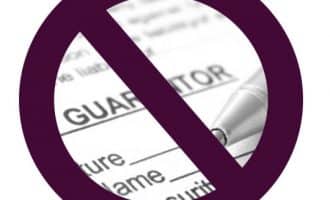Tenant Not Paying Rent
Posted by Stephen on August 3, 2017
As a landlord, when a tenant doesn’t pay their rent on time, it can create cash flow issues. When you have a tenant not paying rent, then you need to take immediate action.
What action is appropriate will depend on how overdue the rent is and how many payments have been missed. In this guide we set out what you need to know to protect your position and take action. You want the tenant to pay the overdue rent quickly and stick to paying it on time in the future.
If the rent is over two months overdue, then consider giving the tenant notice to vacate the property. To do it right, this must be done in a specific way, which we cover below.
The Rent is Under Two Months Overdue
How much rent arrears is needed before you can take eviction action? You cannot give a tenant notice that you want to take possession until rent is at least two months overdue.
Ideally, you should deal with non-payment very quickly after the rent has become due and not paid. Therefore eviction wouldn’t be what you have in mind right away. Send a formal demand, in the form of a letter, to the tenant not paying rent. The letter should take a friendly yet firm tone. Non-payment could be an oversight. Now is the opportunity to remind the tenant to ensure that the rent is paid on time going forward.
Our Rent Arrears Letter template sets out what you need to say to a tenant not paying rent when due. We recommend sending this within three to seven days of the rent’s becoming overdue.
If the tenant has a guarantor, it is a good idea also to send them notice of the fact that the tenant has failed to pay their rent. Also mention that, if payment remains outstanding, they are aware of your right to recover the rent from them.
When payment reaches one month overdue, send the tenant a final demand for payment. This letter takes a much more formal tone and notifies the tenant that non-payment is a ground for recovering possession of the property if needed. Our Rent Final Demand Letter template sets out what you need to say in such a letter.
The Rent Is Over Two Months Overdue
Where the rent has become two or more months overdue, then you should already have sent a letter demanding payment to the tenant. If you haven’t, then do so now, without further delay.
When the tenant has a guarantor, then request payment of the rent arrears from them. Non-payment by the tenant will give you the right to claim payment from the tenant’s guarantor. However, if that doesn’t bring about payment quickly, then you’ll need to consider taking legal action. We cover this in the subsequent parts of this guide.
If There Is A Guarantor
When there is a guarantor and you have requested payment, but they have not paid and neither has the tenant, then you 
However, if you are in this position, then it is unlikely that you want to keep the tenant in question. You may prefer to consider:
- issuing proceedings for payment of the rent by the guarantor, and
- at the same time, giving notice to the tenant, to repossess the property.
If There Is No Guarantor
When there is no guarantor, then you should consider taking legal action to evict the tenant and regain possession.
Once the rent is more than two months overdue, you have a right under the Housing Act 1988 to serve notice on the tenant to end the tenancy. You can send the tenant a “section 8 notice” to end the tenancy.
If the tenant does not then vacate at the expiry of the notice period set out in the section 8 notice, then you can commence possession proceedings.
Non-payment of rent is one of the ‘mandatory’ grounds covered by the section 8 notice. If you find yourself having to issue possession proceedings, the notice you have previously served requires the court to issue a possession order, assuming the notice has been correctly served.
When you do find yourself with a tenant that will not leave the property at the expiry of the notice to vacate, then you’ll need to take eviction proceedings. Read our guide to Evicting Tenants if that applies to you.
Get Legal & Compliance tips straight to your inbox, free!
"*" indicates required fields

